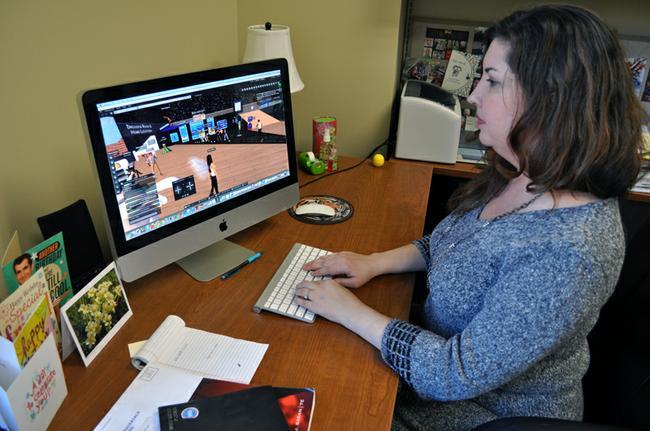Virtual reality and online gaming strongly coincide with users’ offline lives.
However, a study conducted by Elizabeth Behm-Morawitz, an assistant professor in the Department of Communication, revealed that virtual reality can have a positive impact on a person’s well-being, health and self-perception.
Conducted in spring 2011, the study surveyed 279 users in a virtual reality community called “Second Life” over the course of three months. Behm-Morawitz, who undertook this project on her own, created a voluntary online survey gauging player interactions with their avatar, online relationships and their offline health and well-being.
“I was interested on how our online selves through social networking and virtual worlds impact our offline lives,” Behm-Morawitz said. “Does that virtual representation have an impact on our identity and well-being?”
The study showed that users who connected strongly with their avatars, which are online personas, experienced greater positive impacts on their offline health, diet, style, exercise and self-perception.
“For example, people seeking to lose weight could create fitter avatars to help visualize themselves as slimmer and healthier,” Behm-Morawitz said.
To discover the influence of avatars on the virtual reality users, a measure of self-presence is used. If the user perceives the avatar to be a true extension of themselves, they are experiencing self-presence. Higher and stronger self-presence leads to an increased positive impact the avatar will have on the user in their offline lives. Self-presence also leads to more successful and satisfying online relationships.
Although she did not find any negative effects of self-presence or using virtual reality in her study, Behm-Morawitz recommends using any social media with prudence and caution.
When the study results came out, Behm-Morawitz said she was surprised with some of the solutions.
“I thought that the users would be less secure with their avatars,” she said. “It was interesting that the avatars could have a positive impact on health and self-perception.”
Behm-Morawitz also emphasized the overall impact of virtual worlds and social networking. In an “age of play,” virtual worlds and digital communication make up the core of our lives. How we represent ourselves online reflects and influences who we are offline, she said.
Behm-Morawitz plans to further her study by exploring how virtual reality and avatars influence diversity tolerance and expanding appreciation towards others who have different life experiences. To accomplish this, users could change their avatars to a different race, gender or ethnicity and undergo what that particular set of people had to go through in society.
“It’s like a virtual walk in their shoes,” Behm-Morawitz said. “This may occur through the process of identification with an avatar that is different from oneself, or through a virtual simulation that allows individuals to experience discrimination as a member of a non-dominant group might experience it.”
A news release from the MU News Bureau said this technique could be compared to the book “Black Like Me,” which details the experiences of Caucasian journalist John Howard Griffin’s journey in the American South during the 1950s while posing as an African-American by darkening his skin.
Behm-Morawitz’s study, “Mirrored selves: The influence of self-presence in a virtual world on health, appearance and well-being,” was published in the journal Computers in Human Behavior, according to the news release.








